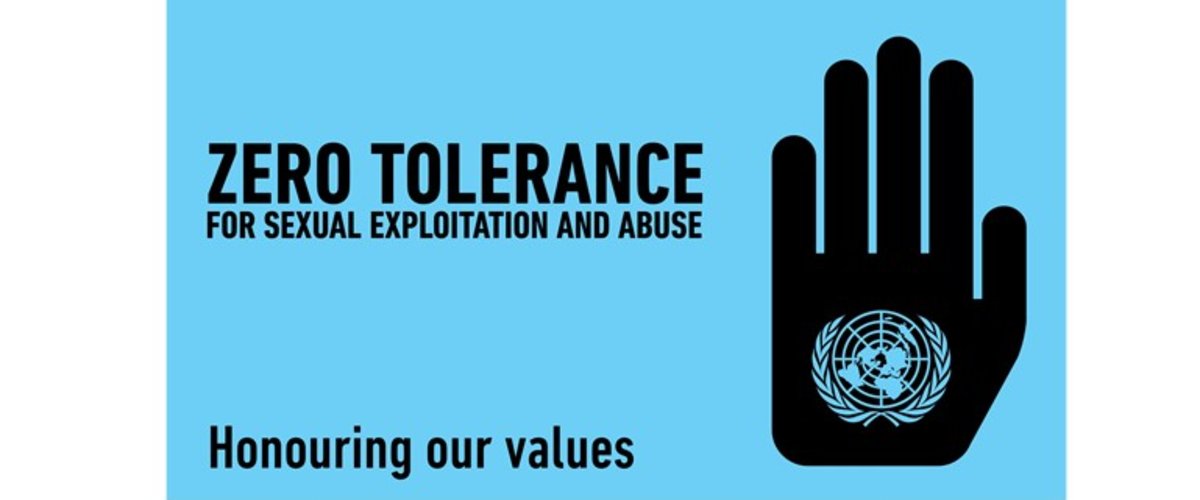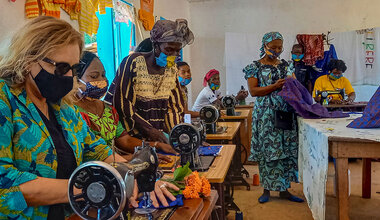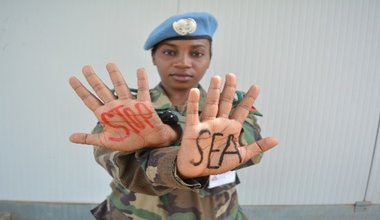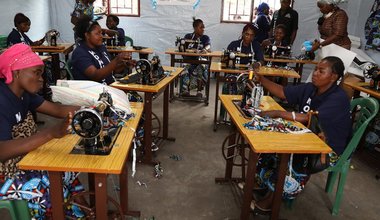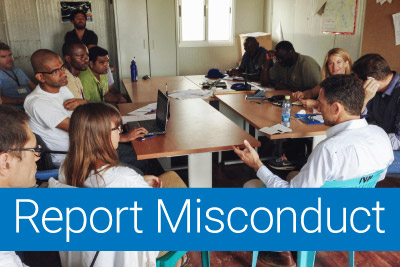U.N. is committed to addressing its peacekeepers’ sexual abuse of women in Haiti | Opinion
Op-Ed by Catherine Pollard, U.N. Under-Secretary-General for Management Strategy, Policy and Compliance, and Jean-Pierre Lacroix, U.N. Under-Secretary-General for Peace Operations, published in the Miami Herald on 21st January 2020.
***
U.N. is committed to addressing its peacekeepers’ sexual abuse of women in Haiti | Opinion
A recent report on the children fathered by U.N. peacekeepers in Haiti is deeply disturbing.
So let us be clear: Sexual exploitation and abuse by U.N. personnel is unacceptable, and we are fully committed to the secretary-general’s zero-tolerance policy. It harms victims and tarnishes the reputation of thousands of our personnel who serve with honor and distinction. It undermines the trust necessary between our personnel and the millions of people we have pledged to protect and serve.
We will do everything possible to prevent sexual exploitation and abuse, address cases when they do occur and support victims and their families — including children fathered by U.N. personnel — and ensure that paternity issues are addressed comprehensively.
The United Nations has a unique responsibility to set a global standard for preventing and responding to sexual exploitation and abuse by those with power and addressing its impact effectively and humanely. The secretary-general has put the rights and dignity of victims at the forefront of efforts to prevent sexual exploitation and abuse and respond to it should they occur.
In countries where U.N. personnel are deployed, our teams train them, raise awareness with communities and receive and respond to complaints. Teams on the ground receive reports, and community networks help victims know where to go to seek help. More people are coming forward as a result, and we are better able to respond.
Our partners on the ground provide medical, psycho-social, protection and legal support, in addition to livelihood opportunities. For example, victims have been referred to partner associations in the Central African Republic for health and livelihood support and for medical services in South Sudan. International humanitarian partners provide crucial services in many field locations.
We have established a trust fund that directly helps victims and others at risk make a living. In Haiti, for example, the United Nations and its partners enable children born of sexual exploitation and abuse go to school and help their mothers gain employment, including by opening their own businesses.
We have also established a special coordinator on improving the U.N. response to sexual exploitation and abuse by U.N. personnel, created a voluntary compact with 103 member states on our mutual commitment to prevent this scourge. By joining a Circle of Leadership, 87 heads of state and government have demonstrated their commitment at the highest political level to stand with us against this scourge.
But the United Nations cannot do it alone. We need the full cooperation of our member states to produce real results for victims. They must ensure that the uniformed personnel they contribute are selected and trained in a way that embed an understanding of zero tolerance for sexual exploitation and abuse. They must act quickly on credible allegations and put the required legislation and processes in place so perpetrators can be held to account and victims receive effective remedies. For the sake of the victims and communities, and to promote greater transparency, the United Nations needs to be informed about the results of their actions. Our contractors must also demonstrate that they have mechanisms in place to ensure their employees are trained and that they receive reports and discipline offenders.
We encourage all who become aware of cases of sexual exploitation and abuse to refer victims and witnesses to U.N. offices and their partners on the ground for assistance and follow-up. It is our duty to hear them.
All of us have a joint commitment to the victims and all those who believe in the U.N. Charter to honor its values. We cannot let them down.
 UN
UN Peace Operations
Peace Operations
